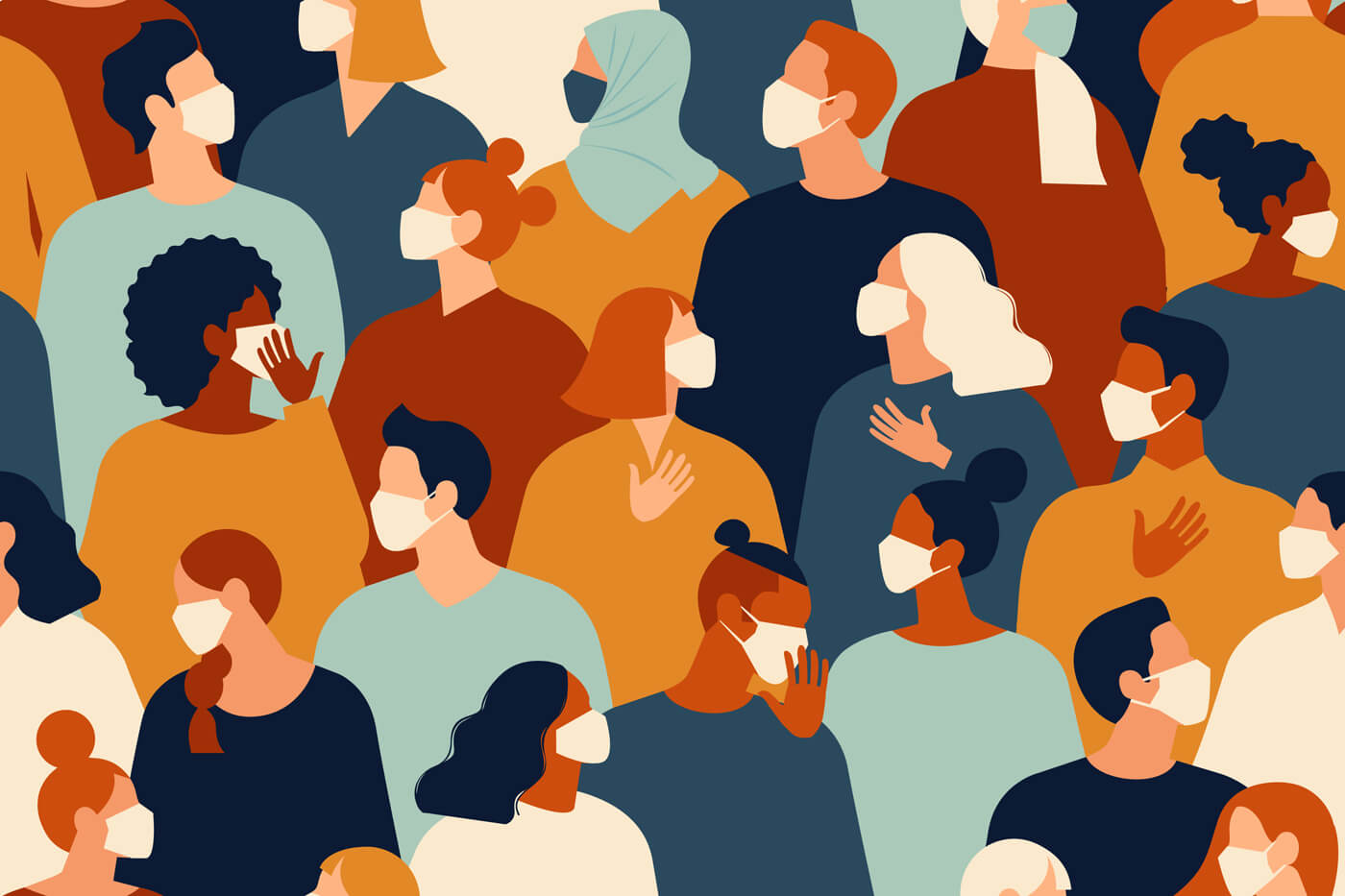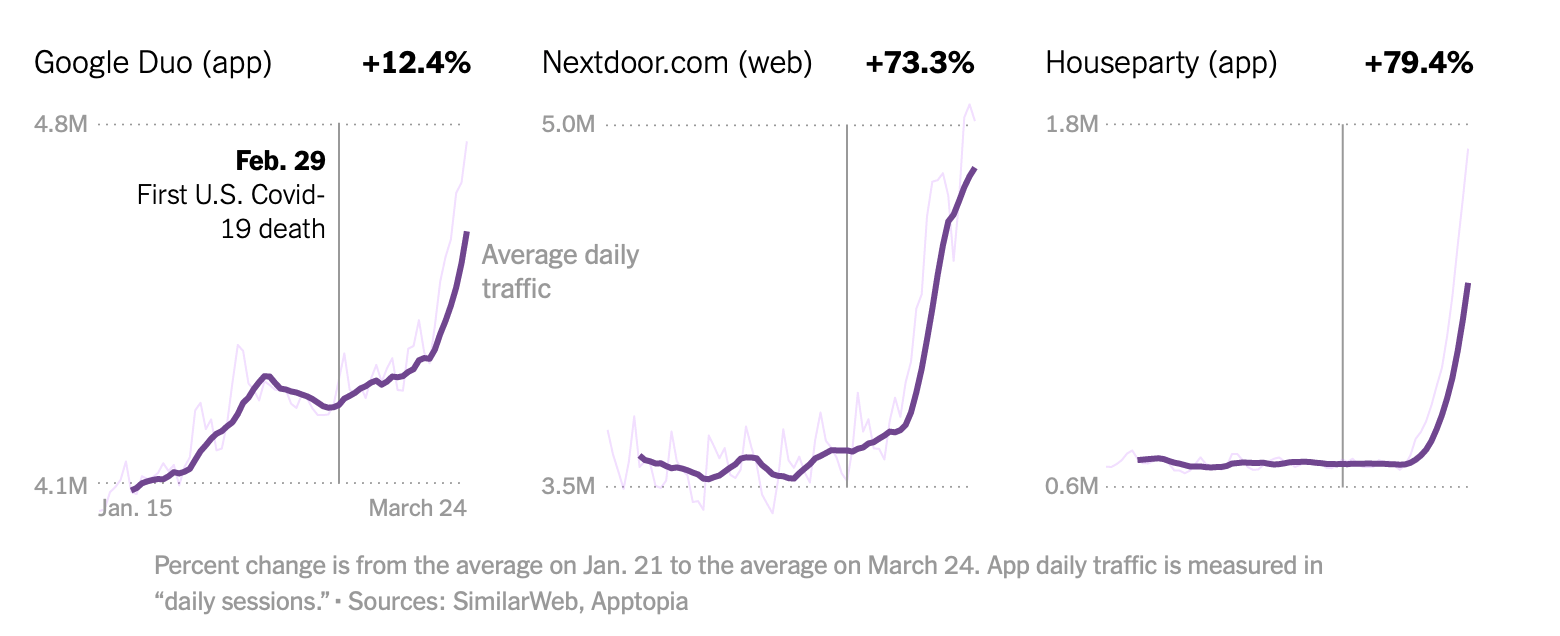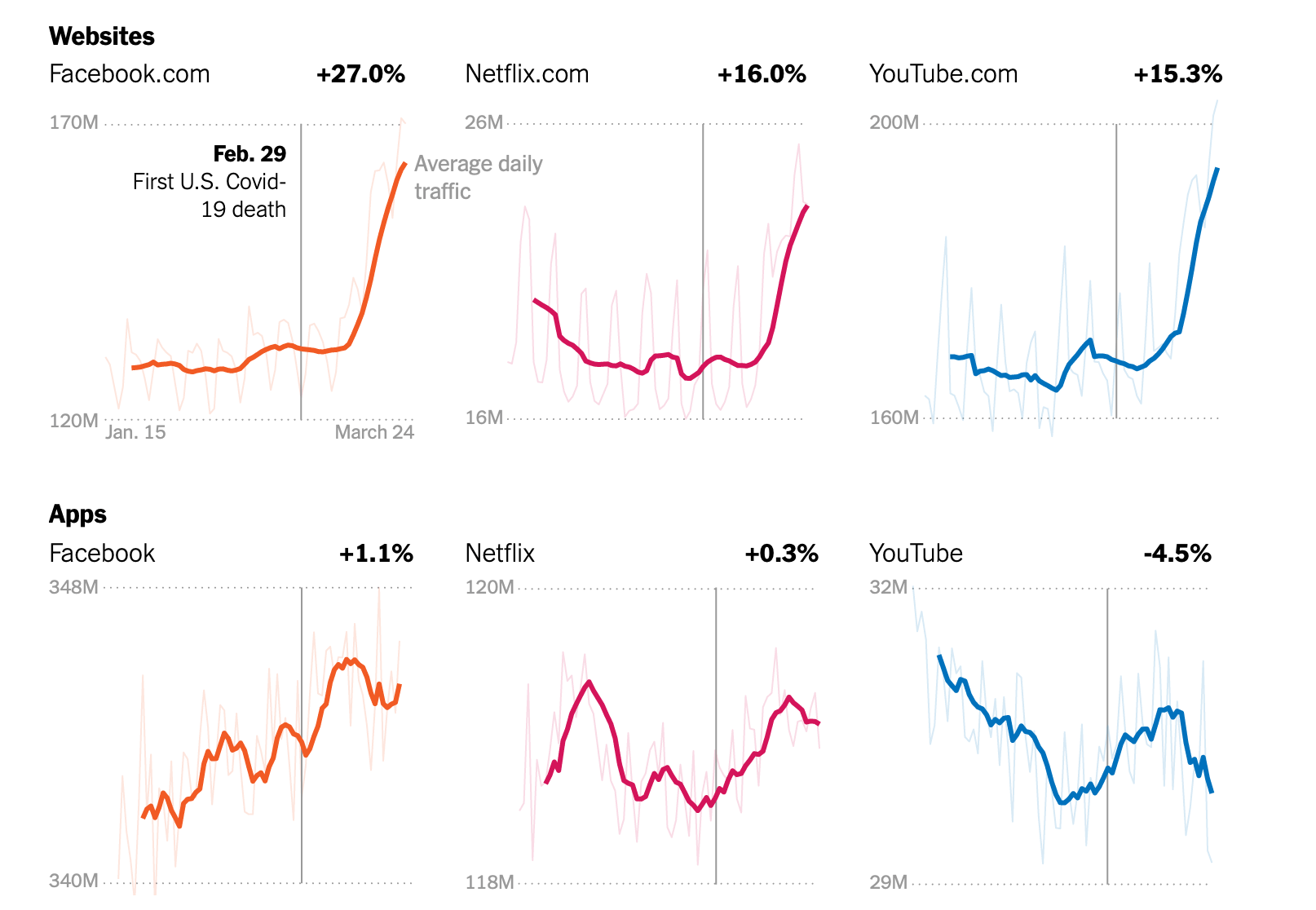In brief: The Coronavirus pandemic has caused a significant change in our relationship with technology, from the way we work and study to the way we get our news and entertainment fix. It turns out that having our computers close in hand makes us less likely to pick up our smartphones.

As of writing, the number of confirmed cases of infection with the novel Coronavirus is quickly approaching the 1.5 million mark. Countries around the world have been shutting down their borders, imposing travel restrictions and enacting lockdown orders for large urban centers, all of which have contributed to a large number of people being glued to their Internet-connected devices more than ever before.
During times of crisis, people's lives follow different patterns of consumption, shopping habits, etc., and the need to stay connected and informed has contributed to a significant shift in how we use the Internet, among other things.
A new analysis from The New York Times that draws its data from SimilarWeb and Apptopia shows that Covid-19 is shaping the way we work, play, and communicate with each other.

As expected, videoconferencing and messaging apps have seen sizable increases in usage, which has propelled even less prominent services like Houseparty, Nextdoor.com, and Google Duo in a way that no marketing campaign could have possibly done in the span of just one month.
This perfectly highlights the need for more video platforms, as people are seeking new ways to connect with their families, friends, and co-workers. It's also the perfect chance for these providers to learn how to serve a diverse set of needs before we overcome the pandemic and move back to connecting in real life.
Zoom, Google Classroom, Microsoft Teams, and Hangouts have become essential tools for people who work or study from home. But in the rush to scale up as quickly as possible, services like Zoom have revealed that the strategy of "move fast and break things" that is so entrenched in the culture of Silicon Valley companies has many downsides. The opportunity to grow fast is used by executives at the expense of the privacy and security of users.
Facebook and Google have seen their share of increased web traffic as well, even though the two companies won't be able to profit from it. According to some estimates, the losses in advertising revenue will amount to $44 billion by the end of this year.
Local and national publications are becoming the preferred source of news for people looking to stay informed, whereas partisan sites like Infowars or Breitbart have seen virtually no increases in traffic.

A more interesting observation in the analysis is that people are flocking to YouTube and Netflix, but they do so on desktop browsers more than they do on the mobile apps. One possible reason could be data caps on mobile plans, with Internet providers like Comcast waiving limits on wired connections - a decision that might outlast the pandemic.
Before lockdown measures went into effect, people used their phones so much that the whole industry tried to churn more apps and games for tiny screens that fit inside our pockets. This pushed even game publishers like EA and Blizzard to disappoint millions of PC gamers by taking platform classics and turning them into mobile titles.
Now that more and more people barely leave their homes, some of these mobile projects are becoming victims of circumstance. An obvious example is the newly launched Quibi, which is a mobile-only platform that now has to compete for eyeballs with services like Disney+ that work on a variety of devices and screen sizes.
At the same time, apps like TikTok have seen no modification in their upward trajectory from before the Coronavirus outbreak. It will be interesting to see if the overall changes in our Internet habits are just a symptom of prolonged isolation or indicative of a bigger shift.
Masthead credit: Angelina Bambina
https://www.techspot.com/news/84752-coronavirus-pandemic-has-strong-influence-way-use-internet.html